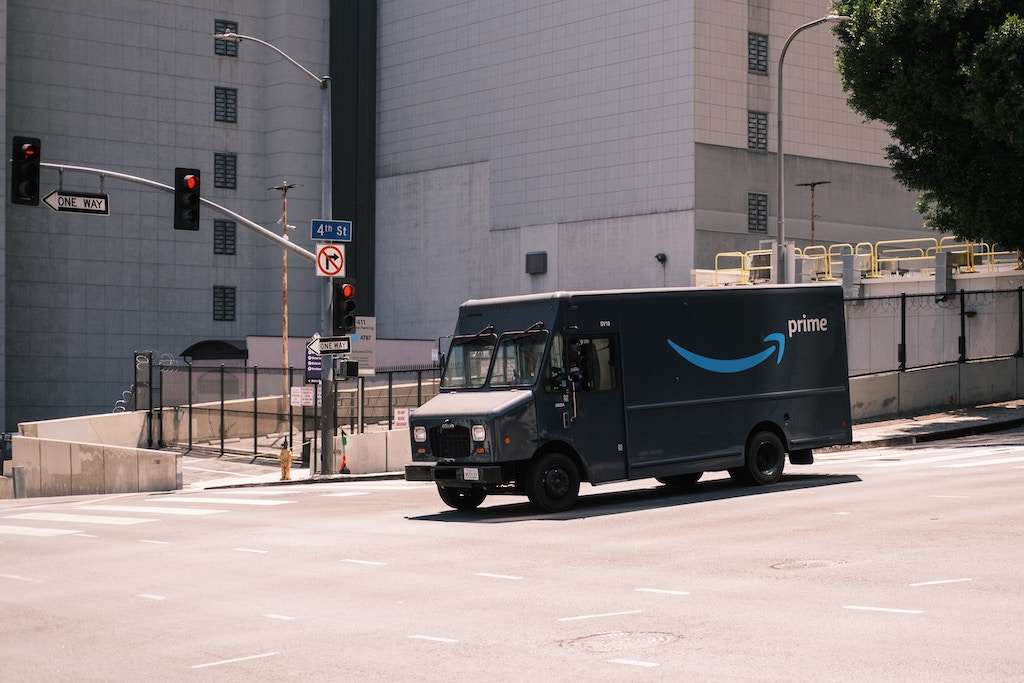Amazon says it is pioneering the integration of artificial intelligence and machine learning to spearhead its sustainability efforts, with a series of innovative approaches aimed at reducing environmental impact across various facets of its operations.
In a post shared on its About Amazon website, Kara Hurst, Vice President and Head of Worldwide Sustainability at Amazon, shared how the platform is leveraging artificial intelligence (AI) and machine learning (ML) to reach its goal of achieving net-zero carbon by 2040, under the Climate Pledge. Hurst says these tools can help the giant meet its climate goals at the “speed, scale, and urgency our planet requires.”
In a significant step forward, Amazon unveiled Rufus earlier this month, a generative AI-powered conversational shopping experience designed to enhance the online shopping journey. Rufus stands out as an expert in Amazon’s vast selection, integrating information from across the web to aid customers in making more informed purchasing decisions. This innovation is part of Amazon’s broader strategy to harness AI and ML — not only to improve customer experience, but also to propel its sustainability initiatives.
Amazon has been at the forefront of utilizing AI and ML technologies to drive efficiency and reduce waste in its operations for decades. Through Amazon Web Services (AWS), the company not only avails AI infrastructure and products to its customers but also democratizes AI technology. This approach enables customers and other businesses to expedite their sustainability efforts, making their operations, purchases, and lifestyles more eco-friendly.

Among the notable applications of AI in Amazon’s pursuit of sustainability is the Packaging Decision Engine, an AI model that optimizes packaging choices, significantly reducing material use since its inception in 2019. This model, constantly evolving based on customer feedback and product attributes, has contributed to Amazon eliminating over two million tons of packaging material globally since 2015.
AI also plays a crucial role in Amazon’s fulfillment centers, where it is deployed to identify damaged goods, enhancing efficiency and reducing waste. The technology, which is three times more effective than human inspection, has been trained on millions of images to distinguish between damaged and undamaged items. Products identified as imperfect are then assessed and rerouted, minimizing returns and promoting reuse.
In the realm of food sustainability, Amazon Fresh employs machine learning to monitor produce quality, aiming to minimize food waste. This AI-powered system assesses images of fruits and vegetables for imperfections, facilitating the recycling of defective produce. The initiative ensures that viable produce is utilized, whether through resale at reduced prices or donation, thereby reducing waste.
To tackle the challenge of returns, particularly in the fashion sector, Amazon has introduced AI-powered tools that provide personalized size recommendations and feedback. These innovations aim to boost customer confidence in their purchases, reduce returns due to fit issues, and offer insights to brands for future improvements.

Amazon’s sustainability efforts extend to measuring the carbon footprint of its products. The Flamingo algorithm, which employs natural language processing, drastically reduces the time required to estimate the environmental impact of a wide range of products. This tool is available to other companies, illustrating Amazon’s commitment to sharing its technological advancements to bolster broader sustainability efforts.
In addition to internal innovations, Amazon is leveraging AWS to contribute to global sustainability objectives, such as preventing deforestation in Brazil. Through partnerships with nonprofits, AWS has developed AI models that enable extensive monitoring of forest areas, facilitating restoration efforts and conservation.
The sustainability of AI itself is also a focus for Amazon, which is enhancing the energy efficiency of its cloud infrastructure through the development of AWS chips. These chips, including the Trainium and Inferentia series, offer significant improvements in training speed and energy efficiency, reducing both the cost and environmental footprint of AI operations.
Related on Ethos:


